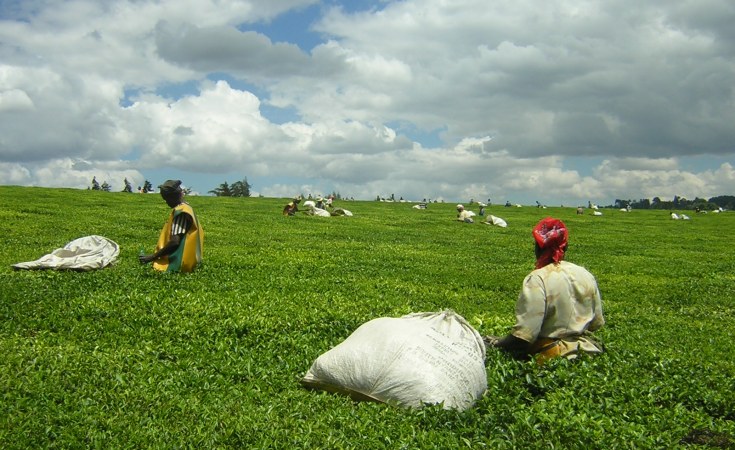A group in the tea-growing Kericho region is seeking redress from Britain. The land taken from them is now owned by multinational corporations.
A group of Kenyans has filed a suit against the British government at the European Court of Human Rights (ECHR). They are seeking an investigation and eventual compensation for land stolen under colonial rule.
The ECHR is not a European Union body, and the UK is party to it.
"The UK government has ducked and dived, and sadly avoided every possible avenue of redress. We have no choice but to proceed to court for our clients so that history can be righted," said lawyer Joel Kimutai Bosek, who is representing the group in Kenya's western Kericho region.
UN: Kenyans' human rights were violated
Much of the land taken in Kericho is now home to tea plantations that make foreign corporations millions every year, as Kenya is the world's leading black tea exporter by volume.
"Today, some of the world's most prosperous tea companies, like Unilever, Williamson Tea, Finlay's and Lipton, occupy and farm these lands and continue to use them to generate considerable profits," the plaintiffs said in a statement.
The United Nations has said more than half a million Kenyans from the Kericho area suffered gross violations of human rights, including unlawful killings and displacement, during British colonial rule, which ended in 1963.
Many continue to suffer economic consequences from the theft of their land, the United Nations has also said.
The British government has rarely apologized or offered redress for crimes committed by its colonial forces. However, in 2013, it agreed on a multimillion dollar compensation settlement for Kenyans tortured by British soldiers during an uprising that occured shortly before the end of colonial rule.
UK officials have yet to comment on the lawsuit.
(AFP, Reuters)


